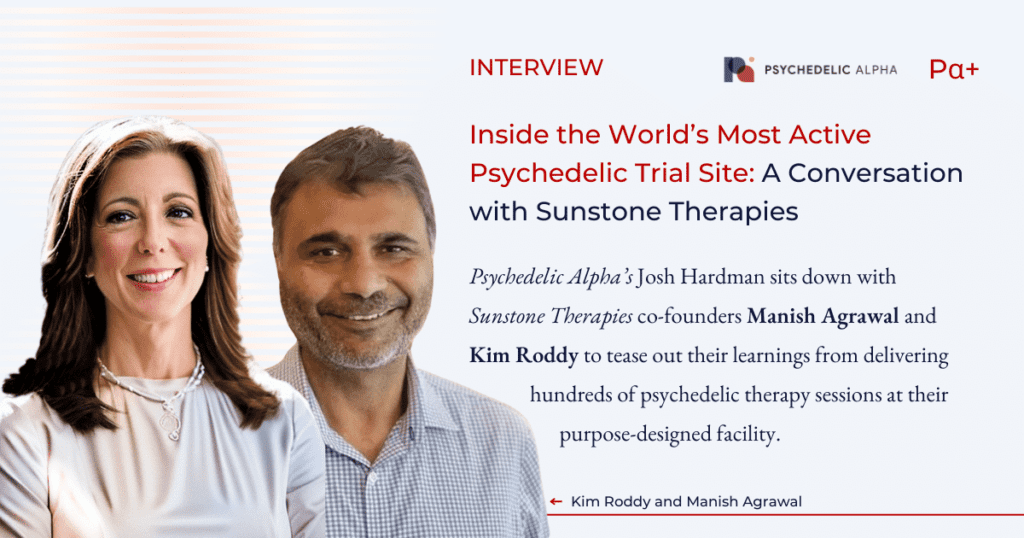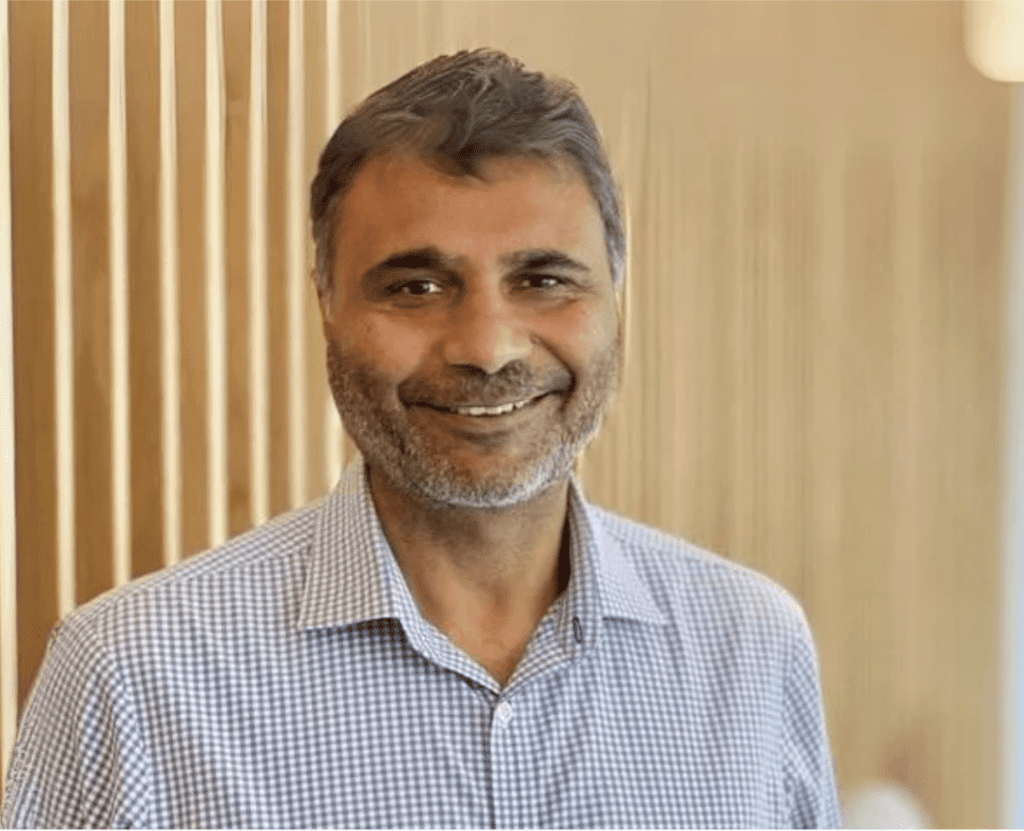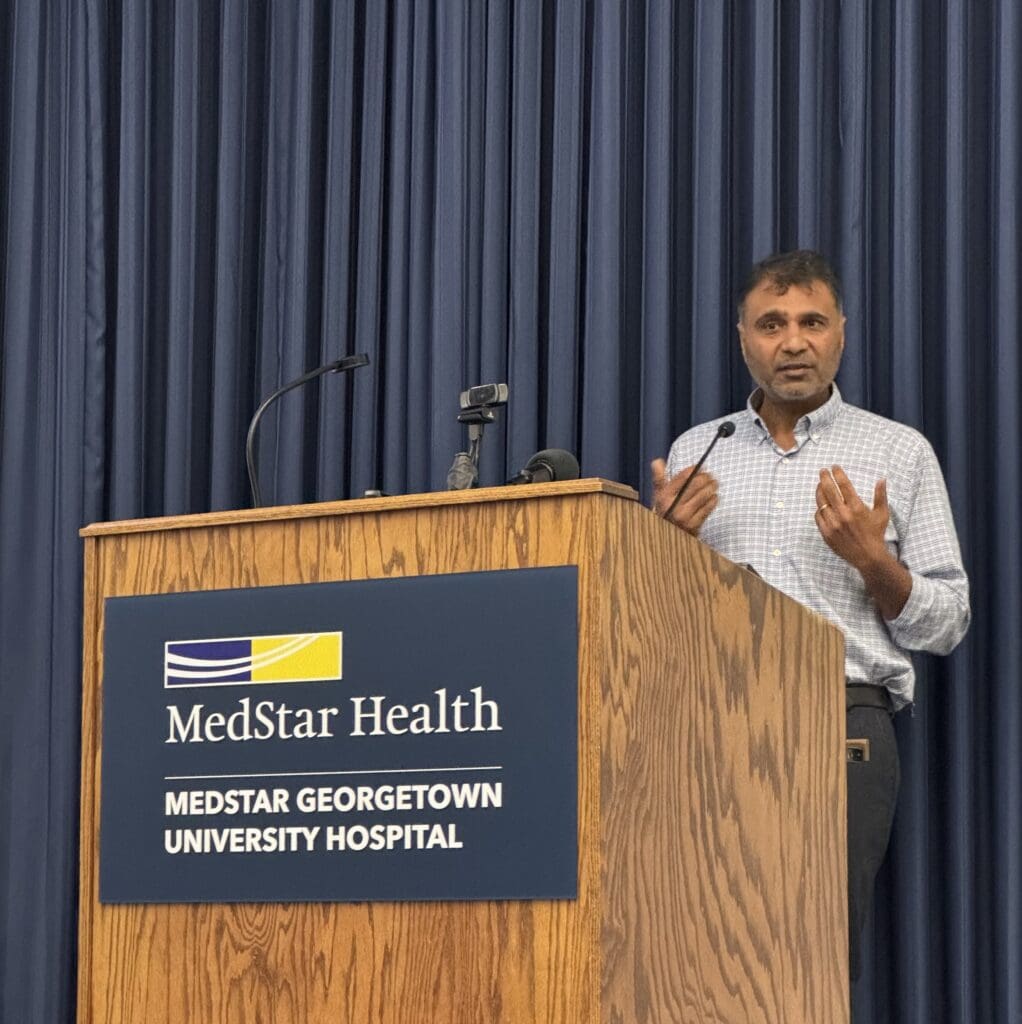Inside the World’s Most Active Psychedelic Therapy Site: A Conversation with Sunstone Therapies
March 12, 2025

Sunstone Therapies Co-Founders Dr. Manish Agrawal and Kim Roddy spoke with Psychedelic Alpha’s Editor, Josh Hardman, about the challenges and insights they’ve gained after delivering hundred of psychedelic therapy sessions. Questions ranged from Sunstone’s founding and trial experience, to challenges in scaling and Sunstone’s insight from years of delivering treatments. Sunstone’s focus is to deepen the understanding of psychedelic-assisted therapy and share valuable insights to help make these treatments more accessible and effective for those who need them.
Interview Key Points
Infrastructure & Scaling
We’re constantly looking at how to standardize treatment processes and develop our systems to create a very efficient operational system which is better for our staff and patients. It’s an incredibly complex system that requires deep knowledge and sophistication.
If, as we expect, we are able to develop systems that can navigate these structural challenges in the rigid protocols of clinical trials — that is, we can create a treatment center that can effectively address multiple different diagnoses with multiple different compounds — that will be incredibly exciting. With the processes, tools, training and infrastructure we’ve created for complex clinical trials, we could now treat 1,000 patients a year at our site in a post-approval setting.
We will continue to learn about what best practice looks like in this field and how we can make that as efficient as possible. But the efficiencies should not come at the expense of caring for people really well.
Drug vs Therapy
I think there is an unhealthy dichotomy developing along the lines of, ‘is it the drug or the therapy?’ Perhaps a more illuminating question is, ‘what’s the role of the sponsor and what’s the role of the field and the practice of medicine?’ How psychedelic medicine is practiced is probably best determined by the people that are going to practice it, not necessarily the pharma companies. So I could see a world where the drug developers determine what’s minimum safety, but not necessarily what’s the best standard of care.
In oncology, chemotherapy drugs would go through extensive safety testing and basic determinations of how the drug should be given, over how many hours, by a chemo-certified nurse etc. But the optimal use of those drugs evolved over time with the practice of medicine.
Patient Experience & Trust
I think sometimes the focus on the drug, which is important, can overlook the care that’s required. When people come in and they feel really safe, they’re able to go deeper into their experience. That care comes not just from a therapist, but it comes from the coordinator, from the person drawing the labs, to the nurse, to the person scheduling. If you’ve had trauma, in some ways the system or someone has betrayed you. If we as an organization can show up in a trustworthy way, that itself is reparative aside from the drug experience.
Therapist Support
It’s not just about the volume of patients – therapists could maybe even do three dosings a week – but in order to do a really good job they have to have an amount of self-care. This work can be stressful and draining, and demanding too much of our therapists will not best serve our patients. That’s why we have a supervision program, weekly staff meetings, and other support for our therapists, because if they’re not recovering and taking care of themselves then the patient-care can really suffer.
On-going Patient Support
That’s one of the most important things we’ve learned in doing this work: patients need to be supported for more than a few weeks after treatment. So even though it’s not part of the drug-trial study, we continue to work with them after they’ve come off of study, and we think this area of integrative care will become more sophisticated and important as the field develops. We plan to play a leadership role in that regard.


